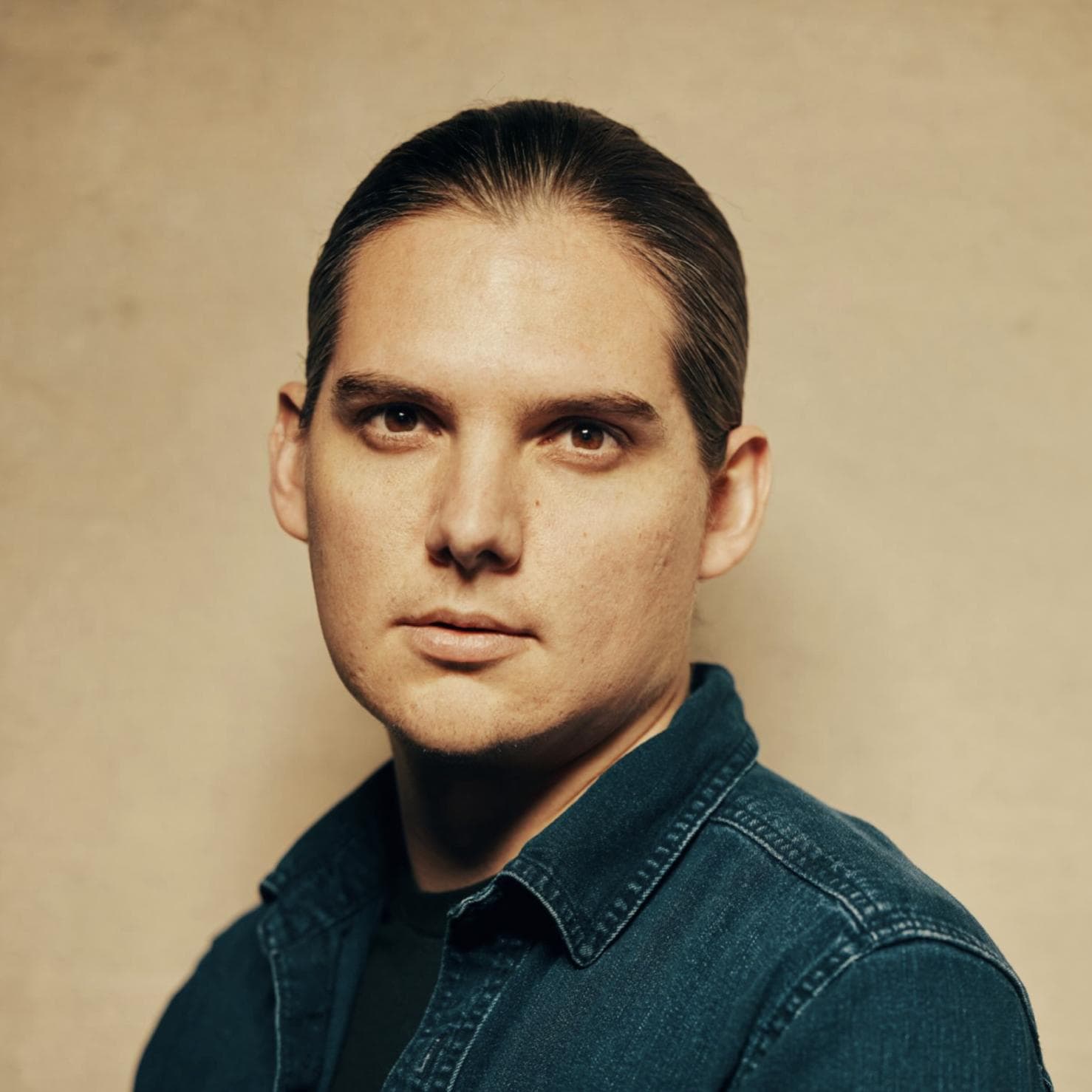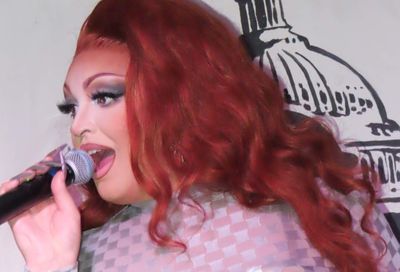U.S. Supreme Court declines appeal from Washington florist who refused to serve gay couple
Refusal to hear case means lower court decision finding Arlene's Flowers guilty of violating the Washington Law Against Discrimination stands.
By John Riley on July 2, 2021 @JRileyMW

On Friday, the U.S. Supreme Court refused to hear a case involving Washington State florist who was accused of violating the state’s nondiscrimination law when she refused to provide flowers for a same-sex couple’s wedding.
The high court refused to grant certiorari, which would allow lawyers for the flower shop owner to argue that anti-discrimination laws prohibiting discrimination based on sexual orientation or gender identity violate the First Amendment rights of those with sincerely held beliefs opposing homosexuality or same-sex marriage. Notably, Justices Thomas, Alito, and Gorsuch indicated they would have voted to hear the case
By passing on the issue, the high court allows the lower court’s decision, in favor of the gay couple denied service, to stand.
Robert Ingersoll and Curt Freed brought the case after being denied flowers for their wedding in 2013, alleging that the proprietor of the Richland-based flower shop Arlene’s Flowers, Barronelle Stutzman, violated the Washington Law Against Discrimination, which prohibits discrimination based on a number of characteristics, including sexual orientation.
Stutzman has claimed that her religious beliefs opposing homosexuality and same-sex marriage prohibit her from providing goods or services that could be used in a same-sex wedding. After first refusing to settle the case for $2,000, and then losing at the district court level, she and her lawyers appealed the case to the Washington State Supreme Court, which unanimously found that the florist had violated the Washington Law Against Discrimination, and that providing equal service to all customers did not violate her constitutional rights.
Stutzman’s lawyers then appealed the case to the U.S. Supreme Court, which remanded the case back to the Washington State Supreme Court for reconsideration, in case the decision might have been clouded by anti-religious bias. The high court had previously found, in a similar case, known as the Masterpiece Cakeshop case, that the Colorado Civil Rights Commission may have acted in a prejudicial manner against a Colorado baker who was found to have violated the state’s nondiscrimination law when he refused to provide a wedding cake for same-sex wedding.
But in 2019, the Washington State Supreme Court stood by its earlier decision, finding, once again, that Stutzman had violated the law and finding no evidence of any animus toward religion in general nor towards Stutzman’s personal beliefs. The court also rejected Stutzman’s claims that the law violates her First Amendment Rights and that lawmakers should carve out a religious exemption in the law.
See also: Washington florist who refused service to gays appeals to U.S. Supreme Court
“Stutzman contends that there is no reason to enforce the WLAD when, as she puts it, ‘[N]o access problem exists.’ We emphatically reject this argument,” the court wrote at the time. “We agree with Ingersoll and Freed that ‘[t]his case is no more about access to flowers than civil rights cases in the 1960s were about access to sandwiches.’
“As every other court to address the question has concluded, public accommodations laws do not simply guarantee access to goods or services. Instead, they serve a broader societal purpose: eradicating barriers to the equal treatment of all citizens in the commercial marketplace,” the decision reads. “Were we to carve out a patchwork of exceptions for ostensibly justified discrimination, that purpose would be fatally undermined.”
Stutzman’s lawyers then appealed the case back up to the Supreme Court once more, resulting in Friday’s decision.

“Today, the Supreme Court confirmed that LBGTQ people should receive equal service when they walk into a store,” Ria Tabacco Mar, a lawyer with the American Civil Liberties Union, which represented Ingersoll and Freed, said in a statement. “Planning a wedding was a joyful time for Rob and Curt until they were refused service at their local flower shop.
“No one should walk into a store and have to wonder whether they will be turned away because of who they are. Preventing that kind of humiliation and hurt is exactly why we have nondiscrimination laws,” Mar added. “Yet 60 percent of states still don’t have express protections for LGBTQ people like the kind in Washington State. Our work isn’t over yet.”
“After Curt and I were turned away from our local flower shop, we cancelled the plans for our dream wedding because we were afraid it would happen again,” Ingersoll added in his own statement. “We had a small ceremony at home instead. We hope this decision sends a message to other LGBTQ people that no one should have to experience the hurt that we did.”
The Human Rights Campaign praised the high court’s decision not to hear the case, and said the decision opens the door for Congress to cement legal protections for LGBTQ people by passing the Equality Act, a landmark law that, if passed, would prohibit discrimination based on a person’s sexual orientation or gender identity in various facets of life.
“By denying certiorari in Ingersoll & Freed v. Arlene’s Flowers, Inc., the Supreme Court has once again said that critical nondiscrimination laws protecting LGBTQ people are legally enforceable and has set a strong and definitive precedent,” Alphonso David, the president of the Human Rights Campaign, said in a statement. “Now, we need these protections for the LGBTQ community, and all people, across the country, and in every walk of life. … The Court has validated nondiscrimination protections, now Congress must follow suit.”
See also:
13-year-old girl sues Florida over bill barring transgender athletes from female sports teams
Caitlyn Jenner wants to move homeless people to “big, open fields”
Transgender woman sues hotel chain for firing her for wearing women’s clothes to work
GOP Platform: Soft on Gay Marriage, Savage on Trans Rights
The Republican Party's official 2024 platform no longer explicitly opposes same-sex marriage but harshly opposes transgender rights.
By John Riley on July 15, 2024 @JRileyMW
GOP delegates adopted a convention platform ahead of the Republican National Convention in Milwaukee, Wisconsin. The new platform, at the behest of former President Donald Trump, walks back some of the previous platform's harsher language on issues like reproductive rights and same-sex marriage.
Trump advisers said they wanted the platform to more closely reflect the former president's stances on various issues.
"This is something hopefully you will pass," Trump reportedly told delegates when he called into a meeting of delegates last week, as reported by The Washington Post. "You will pass it quickly, and we will show unity in our party as opposed to the disaster that is going on with the Democrats.
Grindr Fined $6 Million for Sharing “Sensitive” User Data
A Norwegian court upheld a fine imposed on Grindr for allegedly sharing users' "sensitive" information with third parties.
By John Riley on July 11, 2024 @JRileyMW
The popular gay dating app Grindr has been fined 65 million Norwegian Krone -- or just over $6 million in U.S. dollars -- for allegedly sharing "sensitive" user data with commercial companies.
On July 1, the Oslo District Court upheld a fine imposed on the company by the Norwegian Data Protection Authority, a federal regulatory body, for breaching the General Data Protection Regulation (GDPR), a European Union law that aims to protect personal data and fundamental rights in digital spaces.
The case dates back to 2020 when the Norwegian Consumer Council filed a complaint as part of a report alleging that Grindr was sharing personal data with numerous commercial third parties.
Anti-LGBTQ Activist Causes Tempest in Tractor Supply Teapot
The farm-supply chain drops its HRC relationship and DEI efforts after a prolonged attack by Robby Starbuck.
By Will O'Bryan on July 2, 2024
A Tennessee anti-LGBTQ activist and filmmaker, Robby Starbuck, is claiming credit for the June 27 announcement from Tennessee-based Tractor Supply Company that it is ceasing its efforts to advance diversity, equity, and inclusion.
“This is the first Fortune 300 company in our lifetimes to go backwards on ESG (Environmental Social and Governance), DEI (Diversity, Equity and Inclusion) and all these woke causes and donations, in record speed mind you,” Starbuck told his The Robby Starbuck Show audience on YouTube.
“It’s been three weeks of a barrage of news that me and my team have put out to show the world what Tractor Supply has become.… Here is one of my favorite parts: They’re pulling out of the Human Rights Campaign’s CEI (Corporate Equality Index) scores.
Support Metro Weekly’s Journalism
These are challenging times for news organizations. And yet it’s crucial we stay active and provide vital resources and information to both our local readers and the world. So won’t you please take a moment and consider supporting Metro Weekly with a membership? For as little as $5 a month, you can help ensure Metro Weekly magazine and MetroWeekly.com remain free, viable resources as we provide the best, most diverse, culturally-resonant LGBTQ coverage in both the D.C. region and around the world. Memberships come with exclusive perks and discounts, your own personal digital delivery of each week’s magazine (and an archive), access to our Member's Lounge when it launches this fall, and exclusive members-only items like Metro Weekly Membership Mugs and Tote Bags! Check out all our membership levels here and please join us today!
The Magazine
-
Most Popular
 Matt Walsh Blasts Amber Rose's Appearance at the RNC
Matt Walsh Blasts Amber Rose's Appearance at the RNC  Kamala Harris to Appear on "RuPaul's Drag Race All Stars" Finale
Kamala Harris to Appear on "RuPaul's Drag Race All Stars" Finale  Poll: Who Should Kamala Harris Pick as Vice President?
Poll: Who Should Kamala Harris Pick as Vice President?  J.D. Vance Blocked 30 Pro-LGBTQ Ambassadors
J.D. Vance Blocked 30 Pro-LGBTQ Ambassadors  Buttigieg Smacks Down Vance for "Childless Left" Comment
Buttigieg Smacks Down Vance for "Childless Left" Comment  Pete Buttigieg's Blistering Takedown of J.D. Vance
Pete Buttigieg's Blistering Takedown of J.D. Vance  Gay Porn Star Austin Wolf Arrested on Child Pornography Charges
Gay Porn Star Austin Wolf Arrested on Child Pornography Charges  Gay Porn Star Forced by Russian Police to Entrap Gay Men
Gay Porn Star Forced by Russian Police to Entrap Gay Men  Losing Its Mind Over Kamala Harris, MAGA Stoops to Ugly Name-Calling
Losing Its Mind Over Kamala Harris, MAGA Stoops to Ugly Name-Calling  Elon Musk Says "Woke Mind Virus" "Killed" His Trans Child
Elon Musk Says "Woke Mind Virus" "Killed" His Trans Child
 Poll: Who Should Kamala Harris Pick as Vice President?
Poll: Who Should Kamala Harris Pick as Vice President?  Kamala Harris to Appear on "RuPaul's Drag Race All Stars" Finale
Kamala Harris to Appear on "RuPaul's Drag Race All Stars" Finale  This Week's Advertisers: Issue of July 25, 2024
This Week's Advertisers: Issue of July 25, 2024  J.D. Vance Blocked 30 Pro-LGBTQ Ambassadors
J.D. Vance Blocked 30 Pro-LGBTQ Ambassadors  Buttigieg Smacks Down Vance for "Childless Left" Comment
Buttigieg Smacks Down Vance for "Childless Left" Comment  Elon Musk Says "Woke Mind Virus" "Killed" His Trans Child
Elon Musk Says "Woke Mind Virus" "Killed" His Trans Child  San Francisco's Legendary Gay Club Oasis Robbed at Gunpoint
San Francisco's Legendary Gay Club Oasis Robbed at Gunpoint  D.C. High School Ordered to Recognize Anti-Gay Group
D.C. High School Ordered to Recognize Anti-Gay Group  Vineyard Voyages: Driving Through Virginia's Wine Country
Vineyard Voyages: Driving Through Virginia's Wine Country  Losing Its Mind Over Kamala Harris, MAGA Stoops to Ugly Name-Calling
Losing Its Mind Over Kamala Harris, MAGA Stoops to Ugly Name-Calling
Scene
Metro Weekly
Washington's LGBTQ Magazine
P.O. Box 11559
Washington, DC 20008 (202) 638-6830
About Us pageFollow Us:
· Facebook
· Twitter
· Flipboard
· YouTube
· Instagram
· RSS News | RSS SceneArchives
Copyright ©2024 Jansi LLC.












You must be logged in to post a comment.